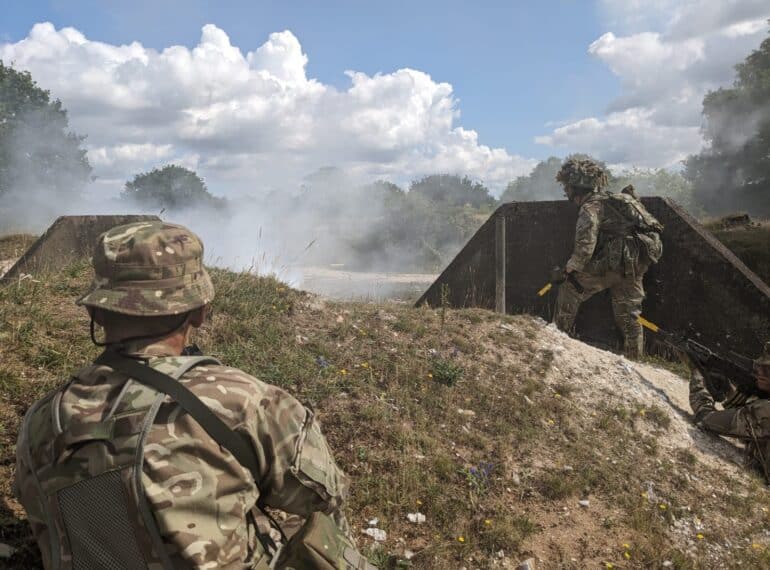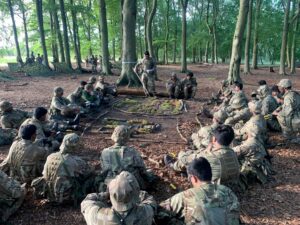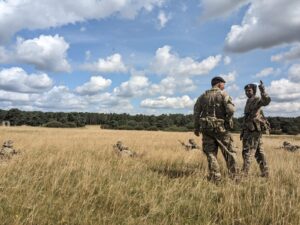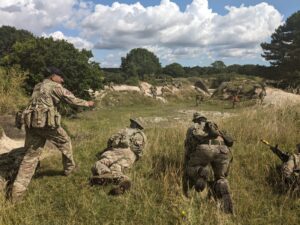
QE’s Combined Cadet Force headed into East Anglia for their longest and most ambitious field exercise yet.
 The five-day summer camp at the Barnham Training Area close to the border of Suffolk and Norfolk featured a wide variety of activities, from attacks on ‘enemy’ cadets to weapon-cleaning and administration.
The five-day summer camp at the Barnham Training Area close to the border of Suffolk and Norfolk featured a wide variety of activities, from attacks on ‘enemy’ cadets to weapon-cleaning and administration.
Contingent Commander Mev Armon said: “This was a fantastic exercise, organised by QE staff, supported by Army Cadet Force (ACF) instructors, and with maximum effort and enthusiasm shown by all cadets involved.
“The sheer numbers of troops from the three schools involved made this the largest exercise for us since COVID, with a total number of 124 cadets and adult staff on the ground.”
 The first two days consisted of further development of section and platoon-level tactics for those cadets who had already had training, together with a ‘recruit cadre’ for those who had not had field craft and tactics training. This brought the latter group up to speed for the 24-hour ‘tactical phase’ that began one night and continued through to the following evening.
The first two days consisted of further development of section and platoon-level tactics for those cadets who had already had training, together with a ‘recruit cadre’ for those who had not had field craft and tactics training. This brought the latter group up to speed for the 24-hour ‘tactical phase’ that began one night and continued through to the following evening.
It was during this phase that the QE group, (1 Platoon), and two rifle platoons from Forest School, Walthamstow, (2 Platoon) came together to form a ‘composite company’ and performed a ‘company attack’ on multiple enemy positions. The enemy platoon came from St Ignatius’ College, Enfield. The attacks were supported by the ‘recruits’, now trained, who formed ‘Fire Support Group’.
 All the platoons then conducted ambushes on enemy patrols to complete the exercise.
All the platoons then conducted ambushes on enemy patrols to complete the exercise.
The final day featured the battlefield first aid training and weapon-cleaning as well as general administration.
Cadets set up their own shelters and ate a mixture of operational ration packs and fresh food provided by nearby RAF Honington during the camp.
“The cadets administered themselves well in the field, maintaining their cleanliness and hygiene. We were very fortunate in not having the extreme weather conditions often found during UK summers,” said Major Armon, who is a Biology teacher.
